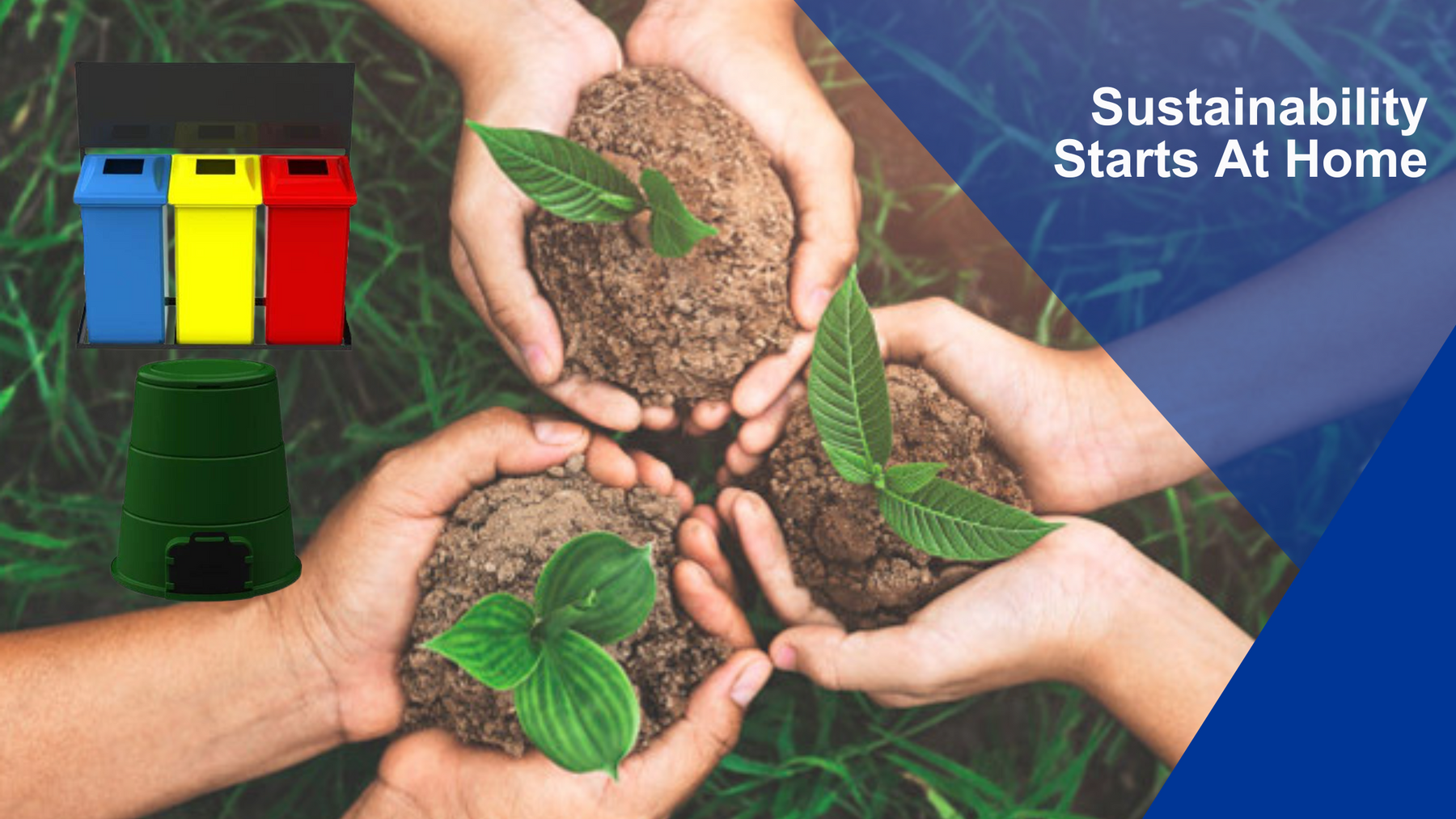
Gardening & Recycling
Sustainability Starts at Home
Sustainability is more than a buzzword! We need to start sustainable practices at home to ensure the longevity of our planet for future generations.
Saving the world sounds daunting, but it’s possible if we all do our bit. Here’s a look at practical things you can start doing today to preserve ecological and human health.
Recycling for Sustainability
Don’t underestimate the sustainability power of your contribution to recycling!
Recycling at home may seem small, but it has a significant impact on the environment and economic sustainability:
-
Recycling creates jobs.
Our municipalities employ many vendors in the recycling value chain, from curb-side collection to sorting and feeding back into the circular economy.
There are many private companies involved in recycling that offer buybacks through which reclaimers earn a living as well. - Recycling saves resources.
By recycling household items such as paper, plastic, and glass, we can help conserve natural resources and reduce the amount of waste in landfills.
Recycling also uses less water and energy than manufacturing from raw materials. This leads to creating less greenhouse emissions, too.
The government can only achieve the goal of zero waste to landfill if each of us gets involved.
With the right approach, recycling at home can be pretty enjoyable—and sustainable 😉
- Colour-coded bins making separating at the source effortless.
- Plan home-improvement projects that will re-use and re-purpose materials. Using chipped or cracked crockery for gardening is an excellent way to reduce waste and spare yourself the expense of new pots and drainage trays.
Consider chatting with your complex management to introduce recycling on a larger scale. Here are the tools to get you started.
Sustainability through Gardening
We all agree that gardening is a calming, if not therapeutic, pastime.
For years, we’ve thought that the benefits of gardening are time outdoors, soaking up Vitamin D and getting some light exercise.
Now you can add to your peace of mind by knowing that your hobby can add to sustainability.
Rainwater harvesting is a sustainable way to irrigate your garden without relying on municipal water.
Growing your own fruits, vegetables, and herbs does wonders!
- It promotes mental well-being, as there is nothing quite like that sense of accomplishment.
- Your little ones are more likely to eat something they’ve grown—a win for getting them onboard with veggies.
- You can rest assured that your food is free from environmentally harmful pesticides.
- Growing at home means reducing energy consumption for refrigeration and pollution caused by transportation in the food supply chain.
- Finally, you’ll waste less food by harvesting as you need. Never throw away a half-used packet of parsley ever again!
We’ve Got Your Sustainable Gardening Starter Pack Sorted!
Hydroponics is a fantastic way to get saplings started. Try these flowerpots for herbs (especially mint, which can overrun your garden).
What other ways do you practice sustainability at home? We’d love to hear—Share with us on social media. Facebook | Instagram
